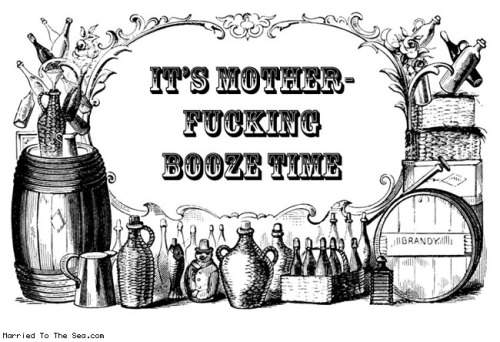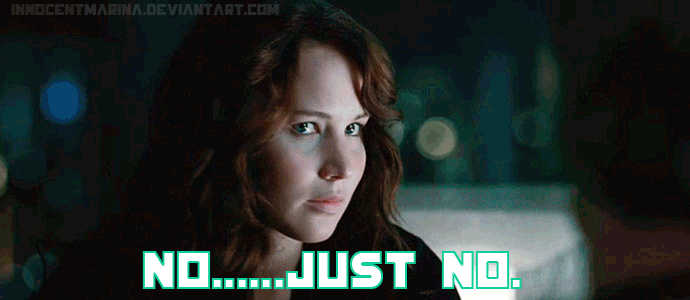This month has been wild for me because my baby sister, my only sister, is getting married!! I have the honor of being her Matron of Honor (I hate being called a Matron, btw) and with that comes a boat load of responsibilities I've fallen short on.
But I'm trying my hardest here people! This is new to me. First time being a MOH.
Anyhoo, tonight we celebrate my sister's last moments as a Singleton. Here's a preview of what I've put together for the party:
So, with dancing safely out of the picture we declared the bachelorette to be:
And for theme, well, we picked the obvious theme:
Here's a real pic of me and my sis. This was for her birthday (as illustrated by her Spiderman super hero birthday button)
Tonight is going to be FUN. Even if I don't see a future for myself in the party planning industry.
Have you been to a great bachelorette party? Share your stories here:
Thursday, August 29, 2013
Monday, August 19, 2013
Did Someone Say Wedding?
I'm not sure if I've shared this on the blog before, but, my sister is getting married. In just a few short weeks she will be taking the plunge. My family is thrilled and my hubby and I are excited because we get to be a part of the wedding party. Eeek!
So the blog will be quiet this month, for the most part, as my time will be better spent working on speeches and planning parties.
I'll be back to a more regular posting schedule next month. For now, here are some fun gifs from my favorite fictional couples. Enjoy.
First scene, when the bride finally takes the walk in 27 Dresses. I couldn't find the clip but it's a moving scene. I cry everytime. For laughs, there is this:

But no groom can beat Mr. Darcy for swoon factor. I'd swim in his lake any day.

And, think what you will, but I love a good ol' sappy love story. So Let's not forget these Adorabeezle couples:



So the blog will be quiet this month, for the most part, as my time will be better spent working on speeches and planning parties.
I'll be back to a more regular posting schedule next month. For now, here are some fun gifs from my favorite fictional couples. Enjoy.
First scene, when the bride finally takes the walk in 27 Dresses. I couldn't find the clip but it's a moving scene. I cry everytime. For laughs, there is this:

But no groom can beat Mr. Darcy for swoon factor. I'd swim in his lake any day.

And, think what you will, but I love a good ol' sappy love story. So Let's not forget these Adorabeezle couples:



Thursday, August 15, 2013
Literary vs Commercial Fiction
What’s the difference between Commercial Fiction and Literary Fiction?
Nothing. Nada. Zilch.
But wait, a wizened blogger said that commercial fiction is character driven and literary is plot driven.
They’re doing it wrong.
But wait, wait, wait. You say some industry professional said that commercial is genre fiction and literary is mainstream.
BUUUUZZZZZ. Sorry. They’re wrongity wrong wrong.
Okay, but my awesome professor in my MFA program totally said that literary is fiction with merit and commercial is crap.
Oh god, I can’t even begin to tell you how wrong that is.
It’s all wrong because there is no difference between commercial and literary fiction. The goal of all fiction is to sell. Each little book baby is sitting in their poopy diapers howling on shelves, or in the virtual void, waiting for you to take it home. It doesn’t matter what shelves or heading the book baby is filed on/under, genre or mainstream, literature or fiction, daily deal or bargain bin. The goal of all fiction is to sell.
Which makes all fiction commercial.
Okay, okay. You say there is a difference between Jane Austen and 50 Shades of Grey. I totally agree with you. You say if we don’t have words to describe the difference how can we bash books in online reviews?
Look, if you want to use ‘literature’ or ‘literary’ to describe the cannons of fiction that have become the cornerstones of modern craft, be my guest. That’s totally appropriate. Just know that ‘commercial’ is not the opposite of literary. If you answered that way on your SAT Analogy section you answered wrong. Every author wants to sell. Every author wants commercial success. So stop throwing ‘commercial’ around like a four letter word.
And last, but not least, if you call your unpub’d manuscript literary fiction I immediately think you are a pompous ass. And you should too. I’m not saying that there’s anything wrong with you being a pompous ass (Well, maybe a little).
Because let's be real. Humility is essential in this business. And who in the world are you to assume your work will become a cornerstone of modern craft?
Who are you to think your work will be celebrated until the end of time? Oh wait, you’re a pompous ass, that’s right. Then keep on keeping on.
What are your thoughts?
Nothing. Nada. Zilch.
But wait, a wizened blogger said that commercial fiction is character driven and literary is plot driven.
They’re doing it wrong.
But wait, wait, wait. You say some industry professional said that commercial is genre fiction and literary is mainstream.
BUUUUZZZZZ. Sorry. They’re wrongity wrong wrong.
Okay, but my awesome professor in my MFA program totally said that literary is fiction with merit and commercial is crap.
Oh god, I can’t even begin to tell you how wrong that is.
It’s all wrong because there is no difference between commercial and literary fiction. The goal of all fiction is to sell. Each little book baby is sitting in their poopy diapers howling on shelves, or in the virtual void, waiting for you to take it home. It doesn’t matter what shelves or heading the book baby is filed on/under, genre or mainstream, literature or fiction, daily deal or bargain bin. The goal of all fiction is to sell.
Which makes all fiction commercial.
Okay, okay. You say there is a difference between Jane Austen and 50 Shades of Grey. I totally agree with you. You say if we don’t have words to describe the difference how can we bash books in online reviews?
Look, if you want to use ‘literature’ or ‘literary’ to describe the cannons of fiction that have become the cornerstones of modern craft, be my guest. That’s totally appropriate. Just know that ‘commercial’ is not the opposite of literary. If you answered that way on your SAT Analogy section you answered wrong. Every author wants to sell. Every author wants commercial success. So stop throwing ‘commercial’ around like a four letter word.
And last, but not least, if you call your unpub’d manuscript literary fiction I immediately think you are a pompous ass. And you should too. I’m not saying that there’s anything wrong with you being a pompous ass (Well, maybe a little).
Because let's be real. Humility is essential in this business. And who in the world are you to assume your work will become a cornerstone of modern craft?
Who are you to think your work will be celebrated until the end of time? Oh wait, you’re a pompous ass, that’s right. Then keep on keeping on.
What are your thoughts?
Tuesday, August 6, 2013
All About Pitching Your Novel
As most of you know, I recently attended RWA13 in ATL. It was ah mazing (see my posts here and here).
One of the staples of writers conferences, I’m told, is pitching. I’ve only been to one Con so far but all the industry vets said that pitching was common. Which might make an introvert, well, more than a little nervous.

If you don’t know, pitching is basically speed dating for writers/agents/editors. You get 10 minutes to quickly highlight the kickassery of your MS.
If it sounds scary, wait, there's more: Pitching is not just some horrible hazing designed to scare off prepub writers. Pitching is done throughout the pub process. Once you get an agent you will still need to pitch to editors. And once you sell your shiny book baby you’ll need to pitch to your fans. And when you try to sell the next book baby, guess what. *gasps* you’ll need to pitch again.
The good news is, pitching is a skill and like all skills it gets better when practiced. Do you think Buffy was this good at butt kicking without practice?

So what goes into a pitch? And what can you expect if you are brave enough to pitch at a Con? How can you practice?
I’m glad you asked.
Pitches should read like a log line. Or very succinct back jacket copy. It’s not as long as a blurb but it’s detailed enough to communicate the premise and leave the person hearing your pitch wanting more. One super cool author at RWA said she thinks of pitches like this: She is ___________. *He is ___________. Together they must___________.
*Note, since it was a romance con, and romance novels have 2 protag’s, this formula works. If you don’t have a second protag it’s totally fine to leave this part out.
The important thing to remember is that each sentence should use the most powerful language available. You don’t have space for boring words.
Here’s an example of a boring pitch for Sleepless in Seattle:
She’s a journalist engaged to be married. He’s a widower raising a son. Together they must overcome their prejudice about true love to find happiness.
Pretty boring right? I mean, you get nothing of their personalities or their situation. This is ‘just the facts, ma’am.’ Which is fine – but not great.
Here’s my attempt at a punchier pitch:
She’s by-the-book, in life and love, which is why she’s about to marry the nicest, most boring man in Maryland. He’s a recently-widowed, believer in true love who struggles to hide his pain in order to provide stability for his son in Seattle. When a popular radio show connects the two, against all odds, they must decide to break through their own walls in order to let love in.
Better right? You know more about the people and their stories without knowing too much. You want more.
It’s a great formula and it really helped me when I pitched. At RWA I pitched 4 times. 7 if you count my practice pitches.
Here’s what to expect when you pitch:
1. It’s similar to an audition for a play. The Agents/Editors will be in a room. Pitch participants will be corralled while they wait for their turn. Generally, someone will be calling out times and names. When your Agent/Editor is called for your time slot you will fall into line.
2. When your time slot begins you will be walked into the room where the Agents/Editors are sitting. At RWA there were three rows of little tables. Each Agent/Editor had a name tag on their table. The volunteers working the pitch area walked the participants in and dropped you off at your table.
3. Agents/Editors are people. Just people, like you and me. They love books and stories and they love this industry. They want to hear about your story. They want you to succeed. Heck, they need you. They don’t have jobs without your product. So they are excited to meet you. Everyone I pitched to was really nice throughout the entire thing. I even ended up pitching to two Editors that had no interest in my work. I misunderstood how it was all supposed to work and I ended up picking two editors that managed lines in Harlequin that had no interest in me. Even those Editors were still super nice. They listened, they laughed, they talked. It’s like a really short job interview. It’s normal to be nervous but if you make it a conversation – don’t just talk at them – you will have an enjoyable pitch session.
4. After the pitch the Agent/Editor might hand you their card. They might say ‘send me something to review.’ *cue internal happy dance*
5. Someone will call ‘1 minute’ and then ‘Time.’ That means your session is over and you have to leave. You stand up, thank the Agent/Editor, shake their hand, and leave. That’s live pitching in a nutshell.
Now, how do you practice pitching?
Easy, pitch. Just pitch. Write the pitch for your story early, while the MS is still firmly in the WIP territory. That way, when a friend or coworker asks you the question “What’s your book about?” you can drop the pitch bomb on them. It’s important to practice saying the pitch because the words can get twisted on your tongue like a cherry step. Say it out loud in the car. Say it to your bestie. Say it out loud in front of the mirror.
Just keep saying it. It does get easier. Still feeling uneasy? Here's an epic hug to make you feel better *sigh*

Have you pitched? What was your experience like?
For more on pitching, see this recap post from WriteOnCon 13
One of the staples of writers conferences, I’m told, is pitching. I’ve only been to one Con so far but all the industry vets said that pitching was common. Which might make an introvert, well, more than a little nervous.

If you don’t know, pitching is basically speed dating for writers/agents/editors. You get 10 minutes to quickly highlight the kickassery of your MS.
If it sounds scary, wait, there's more: Pitching is not just some horrible hazing designed to scare off prepub writers. Pitching is done throughout the pub process. Once you get an agent you will still need to pitch to editors. And once you sell your shiny book baby you’ll need to pitch to your fans. And when you try to sell the next book baby, guess what. *gasps* you’ll need to pitch again.
The good news is, pitching is a skill and like all skills it gets better when practiced. Do you think Buffy was this good at butt kicking without practice?

So what goes into a pitch? And what can you expect if you are brave enough to pitch at a Con? How can you practice?
I’m glad you asked.
Pitches should read like a log line. Or very succinct back jacket copy. It’s not as long as a blurb but it’s detailed enough to communicate the premise and leave the person hearing your pitch wanting more. One super cool author at RWA said she thinks of pitches like this: She is ___________. *He is ___________. Together they must___________.
*Note, since it was a romance con, and romance novels have 2 protag’s, this formula works. If you don’t have a second protag it’s totally fine to leave this part out.
The important thing to remember is that each sentence should use the most powerful language available. You don’t have space for boring words.
Here’s an example of a boring pitch for Sleepless in Seattle:
She’s a journalist engaged to be married. He’s a widower raising a son. Together they must overcome their prejudice about true love to find happiness.
Pretty boring right? I mean, you get nothing of their personalities or their situation. This is ‘just the facts, ma’am.’ Which is fine – but not great.
Here’s my attempt at a punchier pitch:
She’s by-the-book, in life and love, which is why she’s about to marry the nicest, most boring man in Maryland. He’s a recently-widowed, believer in true love who struggles to hide his pain in order to provide stability for his son in Seattle. When a popular radio show connects the two, against all odds, they must decide to break through their own walls in order to let love in.
Better right? You know more about the people and their stories without knowing too much. You want more.
It’s a great formula and it really helped me when I pitched. At RWA I pitched 4 times. 7 if you count my practice pitches.
Here’s what to expect when you pitch:
1. It’s similar to an audition for a play. The Agents/Editors will be in a room. Pitch participants will be corralled while they wait for their turn. Generally, someone will be calling out times and names. When your Agent/Editor is called for your time slot you will fall into line.
2. When your time slot begins you will be walked into the room where the Agents/Editors are sitting. At RWA there were three rows of little tables. Each Agent/Editor had a name tag on their table. The volunteers working the pitch area walked the participants in and dropped you off at your table.
3. Agents/Editors are people. Just people, like you and me. They love books and stories and they love this industry. They want to hear about your story. They want you to succeed. Heck, they need you. They don’t have jobs without your product. So they are excited to meet you. Everyone I pitched to was really nice throughout the entire thing. I even ended up pitching to two Editors that had no interest in my work. I misunderstood how it was all supposed to work and I ended up picking two editors that managed lines in Harlequin that had no interest in me. Even those Editors were still super nice. They listened, they laughed, they talked. It’s like a really short job interview. It’s normal to be nervous but if you make it a conversation – don’t just talk at them – you will have an enjoyable pitch session.
4. After the pitch the Agent/Editor might hand you their card. They might say ‘send me something to review.’ *cue internal happy dance*
5. Someone will call ‘1 minute’ and then ‘Time.’ That means your session is over and you have to leave. You stand up, thank the Agent/Editor, shake their hand, and leave. That’s live pitching in a nutshell.
Now, how do you practice pitching?
Easy, pitch. Just pitch. Write the pitch for your story early, while the MS is still firmly in the WIP territory. That way, when a friend or coworker asks you the question “What’s your book about?” you can drop the pitch bomb on them. It’s important to practice saying the pitch because the words can get twisted on your tongue like a cherry step. Say it out loud in the car. Say it to your bestie. Say it out loud in front of the mirror.
Just keep saying it. It does get easier. Still feeling uneasy? Here's an epic hug to make you feel better *sigh*

Have you pitched? What was your experience like?
For more on pitching, see this recap post from WriteOnCon 13
Thursday, August 1, 2013
Nemesis Cover Reveal: One Secret Could Destroy Everything
Come one, come all! It's time for another super awesome cover reveal!
Today, we are lucky to have Starla back to reveal the cover of Nemesis. Nemesis is the second book in Starla's NA SF/Romance Endue series and is currently scheduled for release on August 26th. That's right around the corner!
Not familiar with Starla Hucton? Starla is an award winning writer. She's published several novels including Maven, the first book in the Endure series. For more info on Starla check out this awesome author interview I did with her a few weeks ago. She's also very active on Twitter.
Not familiar with the Endure Series? Check out this post for more deets.
Now back to business. This post is about Nemesis. But what is Nemesis about, you ask? Good question. Here's the blurb:
"Tech genius Daniel Brewer isn't the only one with a romantic history. Already weighed down with the impossible problem of the Maven Initiative's plans for world domination and disaster, Dr. Lydia Ashley is finding it more and more difficult to keep things in balance. With an old flame reappearing and the schemes of a vindictive new rival thrown into the mix, her hopes for a life with Daniel may be on the brink of annihilation.
When Lydia's past is brought to light, one big secret could destroy everything."
Eeek! Sounds like a tense, romantic thrill ride. You can add it to your TBR pile here on Goodreads.
So now on to the cover. The Maven cover, book 1 in the Endure series, was watery and mysterious. Let's check out the Nemesis cover:
It's so pretty! It's watery and mysterious just like the Maven cover. And I love the log line: One Secret Could Destroy Everything.
Yikes! The stakes are high in this one, folks.
Have you read Maven? What did you think?
Subscribe to:
Comments (Atom)














